List of Prime Ministers of Vionna-Frankenlisch
The prime minister of Vionna-Frankenlisch is the head of the Government of Vionna-Frankenlisch, and chair of the Cabinet. The position was officially established in 1848 during King Edward II's reforms to replace the previous convention of the most influential minister leading the government (usually the Lord Chancellor) and a senior civil servant charing the Cabinet.
List
Post Red Decade (1980-present)
| Portrait | Name (Birth-Death) |
Term of Office | Political Party | Government | Election | Monarch | |||
|---|---|---|---|---|---|---|---|---|---|
| Term Start | Term End | Days | |||||||

|
Arthur Astron (1981–) |
14 March 2020 | Incumbent | 1691 | Imperial Party | Provisional Astron Government | (-) | 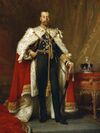 James (r. 2012-Incumbent) | |
| Conservative Party - Imperial Party Coalition | Interrim Deputy | (-) |  James (r. 2012-Incumbent) | ||||||
| Deputy Prime Minister under Dochlov Zimmermann, served as Interrim Prime Minister during his resignation period and became official Prime Minister of a provisional government led by his Imperial Party. | |||||||||

|
Count Dochlov Zimmermann (1968–) |
22 September 2013 | 14 March 2020 | 2396 | Conservative Party | Government of Dochlov Zimmermann | 2013 |
 James (r. 2012-Incumbent) | |
| Elected in 2013 leading a Conservative-Imperial coalition and remained in office for two terms. | |||||||||
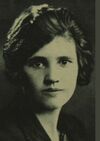
|
Toya Bunting (1987–) |
22 September 2008 | 22 September 2013 | 1826 | Labour Party | Bunting Ministry | 2008 |  James (r. 2012-Incumbent)
| |
| Youngest female Prime Minister at 21. Elected for a single term. Widely believed to be a compromise candidate. | |||||||||
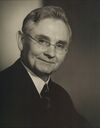
|
Owyn Salian (1958–2018) |
3 August 2006 | 22 September 2008 | 781 | Imperial Party | Salian Ministry | 2006 | 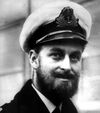 Edward III (r. 1980-2012) | |
| Unexpected result of a snap election and led an unsuccessful minority government for less than two years | |||||||||
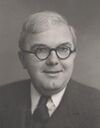
|
Jonathon Montgomery (1960–) |
22 September 2002 | 3 August 2006 | 1411 | Conservative Party | Montgomery Ministry | 2002 |  Edward III (r. 1980-2012) | |
| Elected in 2002 leading a heavy Conservative majority. His personal unpopularity and government bungling of policy led to his defeat in a snap election in 2006. | |||||||||
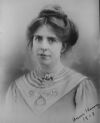
|
Eva Smith (–) |
22 September 1998 | 22 September 2002 | 1461 | Labour Party | Smith Ministry (1998) | 1998 |  Edward III (r. 1980-2012) | |
| Led the Labour Party to victory in 1998 but failed to secure her position in time for the 2002 election. | |||||||||

|
Lady Caterina Fontini (1958–2020) |
21 February 1997 | 22 September 1998 | 578 | Conservative Party | Fontini Ministry | 1997 |  Edward III (r. 1980-2012) | |
| Last government to be led from the House of Nobles. Baroness Fontini's government was extremely unsuccessful but campaigning efforts set up the Conservative reelection in 2002. | |||||||||
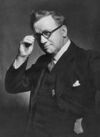
|
John Hammond (–) |
21 February 1992 | 21 February 1997 | 1827 | Labour Party | Hammond Ministry | 1992 |  Edward III (r. 1980-2012) | |
| Elected in the midst of the Prodavan War while the conflict was in stalemate, secured a strong five-year majority government and led Vionna-Frankenlisch to victory. Retired from politics at the end of his term, leading to a Labour defeat. | |||||||||
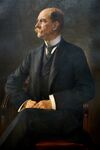
|
Lord Claudius Cypran (1959–) |
18 March 1989 | 21 February 1992 | 1070 | Imperial Party | Cypran Ministry | 1989 |  Edward III (r. 1980-2012) | |
| Elected in the wake of Lord Aemond's reactionary Conservative government, Lord Cypran's government took a more liberal social stance. Led Vionna-Frankenlisch into the Prodavan War. Cypran was voted out mid-conflict due to poor confidence in his war leadership. | |||||||||
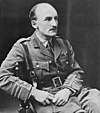
|
Lord James Aemond (1929–2011) |
23 September 1986 | 9 March 1989 | 898 | Conservative Party | Aemond Ministry | 1986 |  Edward III (r. 1980-2012) | |
| First free election since the War of Restoration. The aging Baron Aemond, heading the more reactionary wing of the Conservative Party, became Prime Minister for a three-year government before the political situation began to normalise and he was forced out of office by a coup led by members of the House of Nobles. This event is known as the Glorious Ninth of March, Aemond's reactionary attitudes earned him the opposition of the Vionna-Frankenlischian nobility and led to the election of a comparatively liberal Imperial government. | |||||||||

|
Richard, Earl of Breem (1940–2001) |
11 November 1980 | 23 September 1986 | 2142 | Imperial Party | Royalist Government of 1980 | (-) |  Edward III (r. 1980-2012) | |
| A Royalist military leader during the War of Restoration, Richard Kimberly-Wilton was placed at the head of the military junta that led Vionna-Frankenlisch in the immediate aftermath of that conflict. After a year, he was appointed Prime Minister in an Imperial Party government and elections were reinstated. Though relatively popular and responsible for an excellent rebuilding scheme, his unelected government did not survive the 1986 election. | |||||||||
Royalist Government-in-Exile (1970-80)
During the Red Decade, the Royalist Government-in-Exile operated as a shadow government for the exiled royalists and anti-socialists from Vionna-Frankenlisch. Under George, Duke of Grythshead (reigning as King George), this government retained a Prime Minister from 1970 to 1980.
| Portrait | Name (Birth-Death) |
Term of Office | Political Party | Government | Election | Monarch | |||
|---|---|---|---|---|---|---|---|---|---|
| Term Start | Term End | Days | |||||||
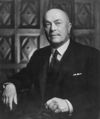
|
Andrew Cartwright (1935–1980) |
23 September 1970 | 1 March 1980 | 3447 | Royalist | Royalist Government-in-Exile | George (reigned in exile. 1966-1980) | ||
| Led the Royalist Government-in-Exile as its first and only Prime Minister. Andrew Cartwright was voted amongst the Exiles Committee to lead the government but did not live long enough to return to Vionna-Frankenlisch, being assassinated by the DPRVF's State Security Service in 1980. | |||||||||
DPRVF (1968-80)
The position of Prime Minister existed in the Democratic People's Republic of Vionna-Frankenlisch from 1968. The Prime Minister was the leader of the National Parliament and chaired the Cabinet, though officially the head of the government, the de-facto Head of Government was usually the President of the Republic or, at times of influence, the Chairman.
| Portrait | Name (Birth-Death) |
Term of Office | Political Party | Significant Events | Election | President of the Republic | |||
|---|---|---|---|---|---|---|---|---|---|
| Term Start | Term End | Days | |||||||

|
Olivier Fitz-Holden (1926–1980) |
1 February 1980 | 29 March 1980 | 57 | Socialist (Waterist) | 1980 | John Andresson (1978-80) | ||
| The final Prime Minister of the DPRVF. A Waterist elected in 1980, Fitz-Holden held office for less than two months before Frankenlisch fell in the War of Restoration and he was executed summarily by firing squad. | |||||||||
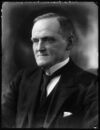
|
Edward Roberts (1934–2009) |
1 February 1976 | 1 February 1980 | 1461 | Socialist (Harrisonite) | 1976 | Anna Tredinik (1974-78)
| ||
| The last Prime Minister of the DPRVF to hold a full term of four years. Roberts was a Harrisonite, stewarded to his position by Marshal Howell to in an attempt to regain influence over his government. Roberts put an end to the War of Resistance by allowing an amnesty and reaching a peace settlement with Imperial Wolfswood. His percieved softness compared to previous leaders earned him ridicule amongst his party collegues but Royalists dubbed him the one 'good socialist' and he was treated generously following the War of Restoration. | |||||||||
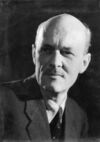
|
Archibald Douglas (1928–2000) |
1 February 1972 | 1 February 1976 | 1461 | Socialist (Waterist) | 1972 | William Waters (1970-74)
| ||
| Elected under the sponsorship of William Waters, then President of the Republic, Archibald Douglas was a former military officer who had switched sides during the Civil War. He was a convinced Waterist who supported the militant foreign policy of Waters but began to lose influence under Anna Tredinik and was not put forward in the 1976 election. | |||||||||
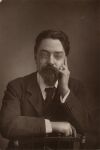
|
Martin Trevalyan (1940–1980) |
1 February 1968 | 1 February 1972 | 1461 | Socialist (Howellist) | First opening of the National Parliament |
1968 | Nigel Standhope (1967-69)
| |
| First Prime Minister of the DPRVF, elected in 1968. Martin Trevalyan served Marshal Howell loyally. Many consider him the only DPRVF Prime Minister to remain true to Howell's thinking and rhetoric. | |||||||||
Pre Red Decade (1848-1967)
| Portrait | Name (Birth-Death) |
Term of Office | Political Party | Government | Election | Monarch | |||
|---|---|---|---|---|---|---|---|---|---|
| Term Start | Term End | Days | |||||||
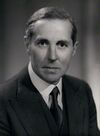
|
George Anstruther (1920–1967) |
19 May 1966 | 1 March 1967 | 286 | Conservative Party | Anstruther Ministry | 1966 | 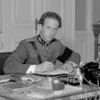 Albert (r. 1933-1967) | |
| Elected just before the Imperial Civil War, killed in the Battle of Parliament Square in 1967. | |||||||||
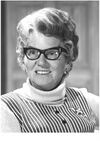
|
Lavinia Walcroft (1917–1989) |
22 August 1965 | 19 May 1966 | 270 | Labour Party | Walcroft Ministry | 1965 |  Albert (r. 1933-1967) | |
| A wildly unpopular and unsuccessful Prime Minister. Lavinia Walcroft was hated by most of her own party for her right-wing rhetoric and was only chosen due to her oratory skills and experience at keeping the Labour Party united (she had previously been Chief Whip). This experience did not help her once she was in office and her government lasted less than a year. | |||||||||
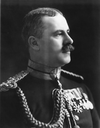
|
Lord Alexander Fieldstone (1910–2000) |
14 November 1963 | 22 August 1965 | 678 | Conservative Party | Fieldstone Ministry | 1963 |  Albert (r. 1933-1967) | |
| Popular Conservative leader elected in 1963. Resigned in 1965 due to bad health, dooming his party to electoral defeat. | |||||||||
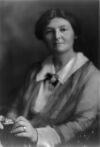
|
Hannah Maybury (1914–1991) |
19 August 1962 | 14 November 1963 | 452 | Labour Party | Maybury Ministry | (-) |  Albert (r. 1933-1967) | |
| Elected by the Labour Party to succeed Nigel Standhope as leader. Heavy campaigning was unable to produce a majority government and Maybury was defeated in the 1963 election. | |||||||||

|
Nigel Standhope (1922–1980) |
18 September 1960 | 19 August 1962 | 700 | Labour Party | Standhope Ministry | 1960 |  Albert (r. 1933-1967) | |
| Elected in 1960 to lead a minority Labour government. Standhope found himself frustrated at every turn by his more numerical opponents in Parliament and resigned from his position in 1962 without calling a general election, his replacement was instead decided by a party leadership election. | |||||||||